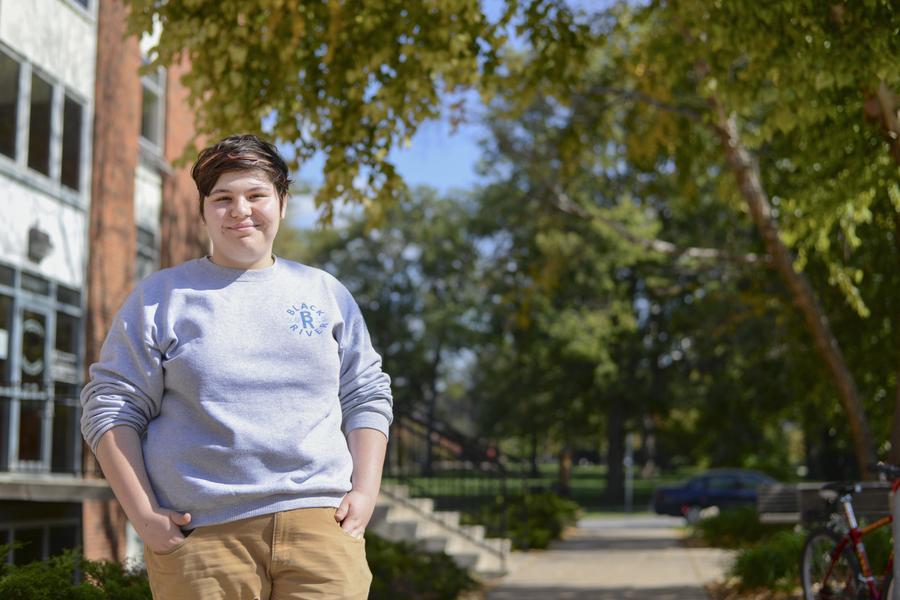
After Laverne Cox’s Oct. 6 speech at the Missouri Theatre, senior Hayden Kristal said he knew there was common ground between him and the issues Cox was addressing.
Kristal, a transgender man and LGBT advocate, saw Cox fearlessly forging a new path for the LGBT community not only through her speeches but also through her work on the hit TV series “Orange is the New Black.”
“There aren’t a lot of opportunities for transgender people on television, and she’s kind of boldly creating that,” Kristal said. “Her character isn’t all about being trans. Her character is multidimensional, and she’s real, and she’s not a victim of her circumstances. She shows young transpeople that their dreams are attainable and that being trans and being a person of color is not going to inhibit their dreams.”
Kristal is deaf, but does not let the disability keep him from his goals. As an advocate for the LGBT community, Kristal has spoken in various cities about the intersection of disability and LGBT issues. He said Cox gave him a better perspective of his own activism.
On Oct. 25, Kristal will be speaking at Columbia University in New York about intersectionality.
“I want to get people thinking about these issues and get them thinking about things they’ve never thought about before in an effort to be more inclusive,” Kristal said. “It’s important that when you’re working as an activist, you have to work with not just one identity, but with different intersections because it affects how you experience oppression and it affects the oppression you experience.”
During her speech, Cox gave an example that Kristal said resonated with his ideology. She commented that members of the black community would police Cox as a transwoman and oppress her at the intersection of who she is.
Cox’s comment struck Kristal in a way he had never thought about. It was an idea that he had been trying to get across while doing disability activism, he said, but never had it been laid out so clearly for him before.
Before Kristal was active in LGBT advocacy, he had to endure obstacles to lead him to where he is today.
“I think it depends on the time, and I think it’s situation-dependent, because things I thought at the time were really hard when I was going through them. Now I look back and they seem petty,” Kristal said. “It’s never just one main obstacle. It’s not one big speed bump, it’s a bunch of little bumps.”
Through his journey, Kristal said he has learned life-changing lessons that he carries with him. The lesson he holds closest is to not take anything personally.
“It’s something everybody says, but it’s something that’s really hard to practice,” Kristal said. “But once I got in the habit of doing what I knew to be right and being who I am, I guess without really taking in other people’s judgments, my life got a lot easier.”
Etti Naveh-Benjamin, assistant teaching professor of psychological sciences, has worked with Kristal over the years in classes and said she continues to be amazed at the work he does to benefit others.
With Kristal speaking to her classes, Naveh-Benjamin said she feels her students have a better sense of what struggling with identity is like.
“He has many different identities as a transman and as an overall person,” Naveh-Benjamin said. “He’s been through a lot of oppression, but he’s a very interesting person, and my students love him. I consider myself an honorary member in his fan club.”
Kristal’s main objective is to let people know that he is more than one descriptor — his transgender identity and his disability are not all of who he is.
“I’m very headstrong,” Kristal said. “I’m a good person, and I’m a strong person. I’m a person who has been put in a position and has been given opportunities that allow me to create opportunities for other people. I’m not the kind of person who can look at the experiences and the things I’ve gone through and the privilege I have to change things and not take advantage of that.”